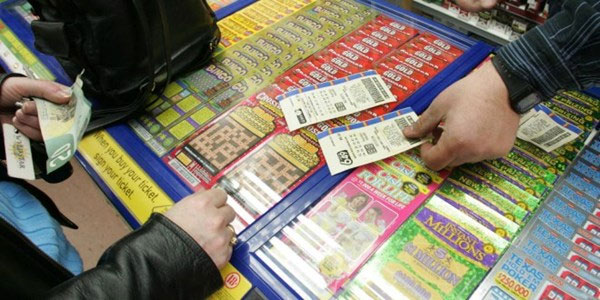Shocking research: The smartest person at 22 degrees Celsius
Scientificamerican led the results of elaborate studies in 2013 by American scientists who pointed out that people have the most comfortable and lucid feeling when they are in a temperature of about 72 degrees F ( approximately 22 degrees C).
The study was carried out by Amar Cheema, a scientist at the University of Virginia and Vanessa M. Patrick of the University of Houston, with the initial starting point of the observation of the phenomenon of choosing travelers' lottery tickets to Florida in the hot heat of summer. There visitors are inclined to ignore the lottery tickets in the dozens and choose the traditional 6-figure lotto lottery tickets . Even most tourists only take a lottery ticket and only record a few phone numbers and that.
But in contrast, in cool climates like Alaska, those who make decisions choose lottery tickets as they like . This difference has created different lucky opportunities. It shows that, in cold weather, visitors can consider and choose the best option, regardless of the more complicated case. In hotter weather, lottery players often choose the most familiar and simple way. Specifically, it is to choose 6-digit lotto lottery. This simple choice makes very low lottery winning rates in Florida only about 1 in 22,957,480 chances of winning.

Temperature affects the choice of playing lottery of other travelers?(Illustration)
Then the Amar Cheema researchers of the University of Virginia and Vanessa M. Patrick of the University of Houston collected data on sales of various types of lottery games in St Louis County for a year. On that basis, they find the difference in business model and daily temperature interaction. The results are impressive. With the scratch-off ticket type requires buyers to come up with a variety of options to show that every 1 degree F increase reduces the chance of winning $ 594. Meanwhile, lottery tickets require less decision so winning buyers seem unaffected.
From these observations, the two researchers decided to experiment in the laboratory about the correlation between the weather and the complex choice of human perception by a series of comparative cognitive abilities. Humans are in environments that range in temperature from 67 degrees Fahrenheit to 77 degrees Fahrenheit. Research results show that test participants tend to be most comfortable at temperatures around 72 degrees Fahrenheit (about 22 poison).
Although it only deviates from the minimum and maximum temperatures in the 5 degree F study, it makes a significant difference in the impact on human cognitive function. Participants in laboratory studies were asked to read an article while they were at 67 degrees F and 77 degrees F.
People at warmer room temperatures are much less able to control cognition than those in cooler rooms. They did not identify nearly half of the spelling and grammatical errors of the article, and those in the cold room missed only about a quarter of the error of the article. These results show that even while performing simple cognitive tasks, humans can be affected by ambient temperature .

Are people in cold rooms thinking better than people at hot room temperatures?(Illustration)
In a second study, the researchers asked participants to make more complex calculations in choosing two plans to buy mobile phones. One simple option is to choose a phone that looks attractive but more expensive. As a result, the people in the hotter room only spend exactly one quarter of the total time spent on selection and have a tendency to choose a simple plan. On the contrary, those in the healthy room have spent more than half of the time choosing and providing complex analysis to choose the more effective plan.
Continuing to carry out the third study, the two scientists also showed that people in hot environments often find it easy to fail in case of complicated decisions. When asked to choose two products: a creation and a tradition, the people in the hot room often have a tendency to choose products that look superficial but often very few mobilize the necessary cognitive resources to fight. Price information about products compared to those in cold rooms.
Of course, this study does not mean that people living in hot areas are not able to make smart decisions. But it does show, however, that temperature is one of the factors affecting people's smart decisions because it is more or less influential to human thinking.
- When is the smartest person?
- Central in the hot 39 degrees Celsius
- Cold air strengthens, the North is at least 2 degrees Celsius
- Temperatures in the Northern provinces are down to 14 degrees Celsius
- Bac Bo was sunk in cold weather, Hanoi 14 degrees Celsius
- Stunning photos at minus 9 degrees Celsius
- The North received more cold spells, many places below 13 degrees Celsius
- Discovering planets hotter than 2,000 degrees Celsius
- Traffic lights are melted in the heat of 50 degrees Celsius in Mexico
- How will the body change when the temperature drops to 10 degrees Celsius?
- Hot earth 2 degrees Celsius will have worse consequences than heating up only 1.5 degrees Celsius, why?
- Central Vietnam can heat up to 40 degrees Celsius
 'Fine laughs' - Scary and painful torture in ancient times
'Fine laughs' - Scary and painful torture in ancient times The sequence of numbers 142857 of the Egyptian pyramids is known as the strangest number in the world - Why?
The sequence of numbers 142857 of the Egyptian pyramids is known as the strangest number in the world - Why? History of the iron
History of the iron What is alum?
What is alum?